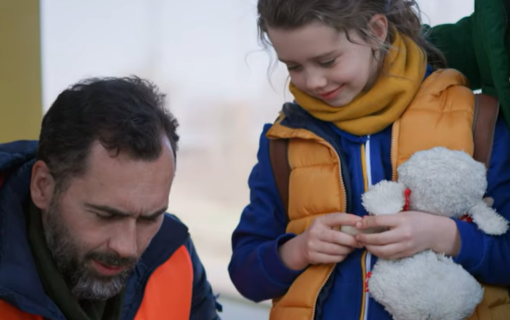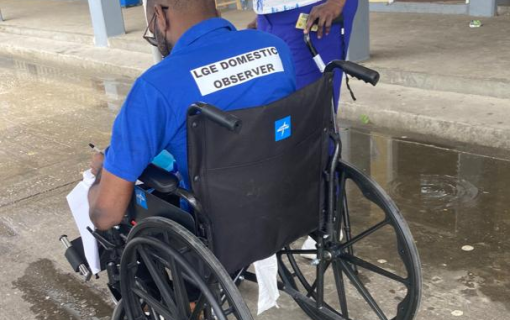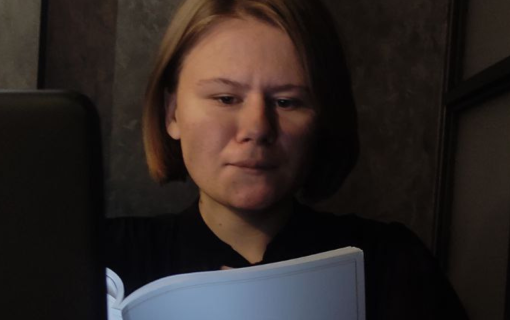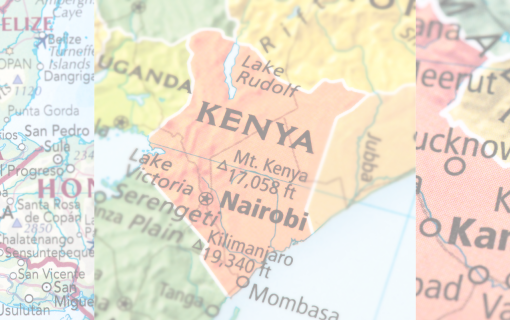Democracy in Theory and Practice: A Q&A with David Jandura
David Jandura, Program Associate at Creative Associates International, spent over three years in IFES’ Applied Research Center working on ElectionGuide.org, and assisted in public opinion research and program monitoring and evaluation. A graduate of Georgetown University’s democracy and governance master’s program, Jandura tells us how theory guides his practice, what he has learned about democracy and the impact of media on citizen engagement.
Where do you work now and what countries do you focus on?
I currently work at Creative Associates International in the Electoral Education and Integrity Practice Area. Our practice area works on elections, election violence mitigation and civil society strengthening. I manage a voter and civic education program in Libya.
Through both your work and studies, you have seen the academic and practical side of democracy assistance. How do the two realms complement each other?
They are both necessary. From the transitions literature to studies of electoral system design, academic studies of democracy have shaped my understanding of what I’m actually doing. Any practical knowledge still needs to be guided by good theory. I can put it this way: you would not want to ride in a plane built by somebody who is a great mechanic but does not understand the theory of gravity. In the same way, I would not have confidence in the success of a development program run by somebody who knows how to manage a civil society organization, but cannot explain why a strong civil society will contribute to the development of their country.
Further, any well-designed intervention should be based on a theory of change. That is, if we do X activity, why will it lead to a change in Y? It is not enough to assume relationships and causal impacts. Will more transparency in government lead to more accountability? Often times it does not. Can civil society organizations play the role of political parties (interest aggregation) in less democratic states?
Academic research can guide us to make smart interventions and design programs that actually help people. Otherwise, we are just throwing things at a problem and hoping something happens.
You have been working with emerging democracies. What are the key components for democracy to take root and flourish?
If only we knew that! People have been debating for decades why some countries are democracies and some are not. The explanation is not made easier when many have different definitions of what a democracy is, or at least what they think it should be. One of the fascinating things I have observed working on public opinion surveys is how so many people across the world have such different reactions to what the word “democracy” means.
It is difficult to define because, in practice, there is no such thing as a pure democracy or autocracy. We have come up with useful typologies and metrics to measure regime types, and many are very helpful. This does not mean, however, that we can pinpoint an exact moment when a country “transitions,” or becomes a democracy. Maybe a country improved the fairness of its court system in one year, but also started to crack down on journalists. Democracy is not a stage you reach and then stop, it is an ongoing process. Even in consolidated democracies like the United States, there are still debates over important issues, such as ballot access and political financing.
I think it is more useful to look at what we value in a democracy and work on strengthening these components. We can, for example, measure levels of press freedom, government transparency, strength of the rule of law or quality of elections. None of these qualify a democracy independently; even a "free and fair" election does not make a democracy by itself. They are all, however, still important to the democratic process.
You have also been involved with online communications and social media. How do the new media and media in general help build democracy?
Social media and digital communication can play a role in fostering greater accountability, but it is important to not overhype their impact or assume they will only play a positive role. Any technology is a tool, and tools are generally neutral. Who is using them and how well they are using them matters just as much, or more than, what they can do. Whenever I talk about using technology in development, I emphasize that it is more important to build the capacity of individuals to use technology rather than focus too much on the technology itself.
This does not mean technology is unimportant. Social media, specifically, can a play a positive role in building democracies, as it facilitates horizontal networks necessary for interest aggregation and challenging authority. In the case of autocratic regimes, social media can ease obstacles for communication, which reduces collective action risks associated with opposition to a repressive government. Autocratic governments often benefit from individuals not knowing their relative level of support in the country. With social media, however, it is easier for someone to discover a community of like-minded individuals. Citizens in one city can view a protest by people in another. Previously it was easier to isolate and prevent any knowledge of unrest.
Digital media can also play a role in fostering communication in emerging democracies, and even facilitate direct interaction between citizens and their government. However, it is always important not to assume too much influence. For example, the Internet has made it easier for me to access campaign finance laws in the United States and see who donated money to specific candidates. Does this mean that I will access this information and do anything with it? Maybe, maybe not. In this case, the technology is serving a useful purpose, but it is insufficient for solving a problem in isolation.
What is your fondest memory from your work with IFES?
My fondest memory was working on a survey in Yemen right after their 2012 early presidential election. It was an exciting time to be in the country, and I learned a lot both professionally and personally from my experience. I was also very proud of what we accomplished through the survey.
I love gathering information on what people in a country are really thinking. Part of helping people involves listening to them; people know their country better than we do, and they can usually teach us quite a bit. Surveys are a great way to obtain non-anecdotal information on how individuals feel and what they need. It was also inspiring to work with so many dedicated Yemenis willing to take the time and talk to people across the country. Some of the areas visited were not completely safe at that point in time, but the Yemeni team still did their job despite the risk. I loved meeting the people, enjoying their hospitality and collecting information that could be used for tailoring a program to their needs.









